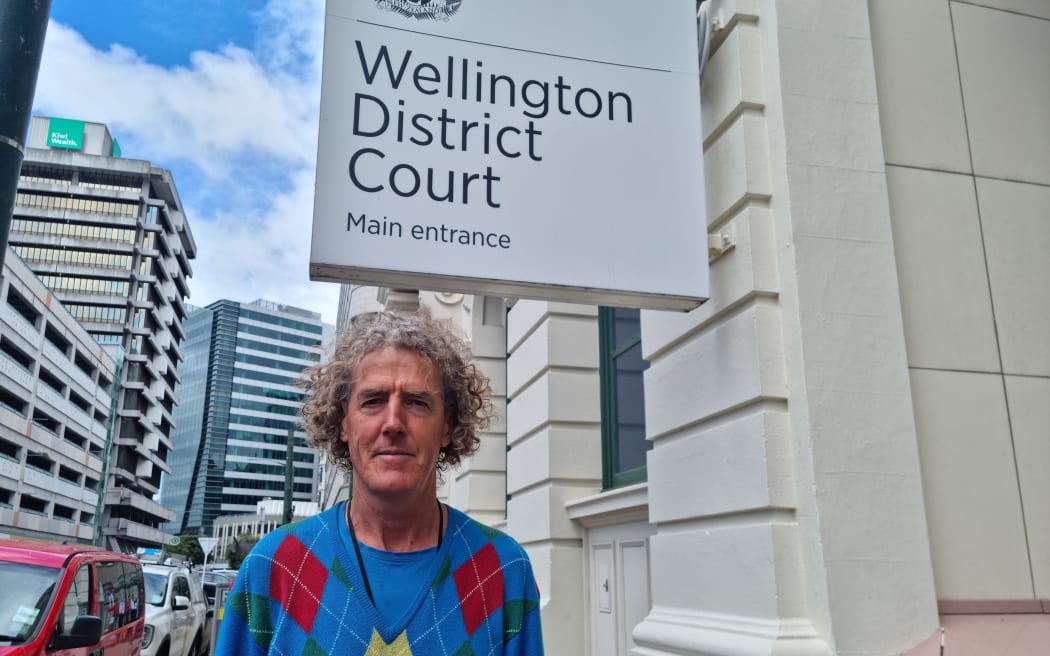
Peter Wham was pasting up a climate crisis flyer in central Wellington last month when he was taken into custody for breaching his bail conditions.
Wham had earlier thrown red paint over the front of a luxury car dealership in a climate stunt that resulted in his being handcuffed and charged with wilful damage.
A month later, the activist was pasting up climate crisis posters near The Embassy in central Wellington when the police caught up with him again.
"I think I saw the back of a police car going past. They must have recognised me from the car dealership protest and seen that I was postering," Wham said.
"A few minutes later a couple of other cop cars turn up and there's three or four police officers. I'd just finished putting up a poster and one of them calls out my name and says: "Peter!"
Wham said the officers approached him, one showing him his bail conditions that included not to encourage, support, entice or organise any illegal protest activity.
"I just said to him the emphasis in that bail condition is the word 'illegal', isn't it? I said to him, I don't think what I'm doing is illegal, but his interest was more in the 'not encourage, support, entice or organise'. That's what caught his eye on the bail condition."
Wham was arrested anyway and spent a night in a police cell. The next day the case was thrown out.
The police prosecutor said even on law enforcement's own broad interpretation, putting up posters was not a breach of the bail conditions.
Judge Andrew Nicholls - who is overseeing a bunch of Restore Passenger Rail court cases - said the police got it wrong and apologised to Wham.
This may not be the end of it, however, as Wham is now seeking compensation, also known as 'Baigent damages', claiming a breach of the Bill of Rights.
RNZ understands a taxpayer payout could reach thousands of dollars.
University of Waikato law professor Alexander Gillespie said it was clear police had overstepped.
"From the facts that we've got, if his bail said not participating or supporting illegal activity that's one thing, but supporting and promoting legal protest is another.
"No one should be incarcerated for supporting legal protest."
Gillespie said getting to the bottom of exactly what happened - and why - was crucial as New Zealand was a liberal democracy and frustration from both sides of the picket lines was only increasing.
"As climate protests increase, we've got to balance the right to protest, to freedom of assembly, against the rights of other people," Gillespie said.
"The temptation of protesters is to try to push them to one side or take away their power, and that's where if I see people being arrested unduly or put into detention unduly, we have to start ringing alarm bells."
Gillespie has written about global climate protest trends - pointing out some parts of the world - such as Britain - are already setting up new laws to deal with them.
"This trend is escalating and it's going to get more difficult in time to come," he said.
"I think in New Zealand particularly it could rise quite quickly as our climate policies start to go backwards from where they were with the last administration."
He said New Zealand needs more detailed laws to keep up with growing climate protest action.
"You can say to someone: 'you could get 14 years in jail for blocking a road and 10 years if you're a ram raider and you steal someone's jewellery from a shop'. It's completely out of whack."













